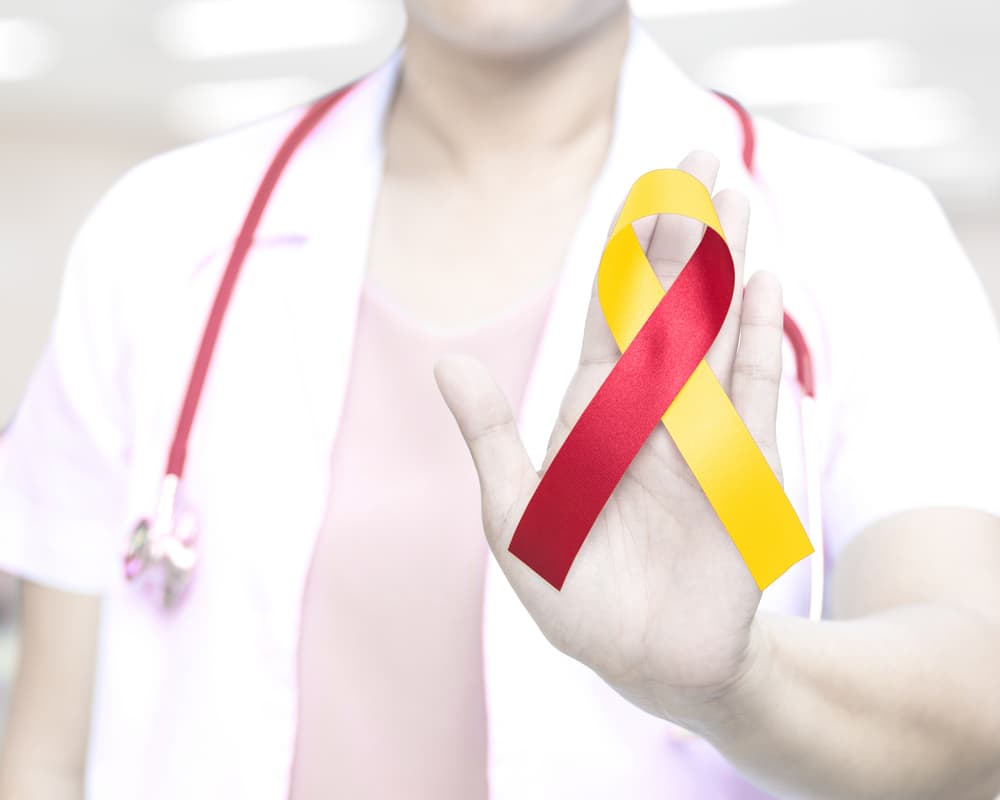Contents:
- Medical Video: 6 Signs You Were Never in Love
- Feeling he is the most special
- No matter the lack of him
- Like addiction
- Difficult times make the relationship closer
- Obsessed with him
- Want to always be together
- Do anything for him
- Follow your partner's tastes
- Not only about sex
Medical Video: 6 Signs You Were Never in Love
Researchers have found that when falling in love, the brain looks very different from before. The study, led by Helen Fisher, an anthropologist at Rutgers University and one of the leading experts on love has revealed that when falling in love is a unique phase and almost always leads to a good phase in a certain period of time. Quoted from livescience, Here are 13 signs if you are in love:
Feeling he is the most special
When you are in love, you start thinking if he is the only one. This belief is supported by the inability to feel romantic passion in others. Fisher and his colleagues believe that this is caused by an increase in central dopamine levels, the chemicals involved in attention and focus in your brain.
No matter the lack of him
People who are in love tend to focus on the positive side of the couple rather than seeing the shortcomings. They are also more sensitive to objects that are reminiscent of him, and assume if the object represents a loved one. This focus is also thought to be the result of an increase in central dopamine levels, as well as a surge in central norepinephrine, a chemical associated with increased memory with new stimuli.
Like addiction
As is known, when we fall in love we often feel emotional and physical instability. You certainly have felt very happy, feeling happy, and more excited when the relationship was intimate, right? But it turns around when suddenly you fight with your partner so you have trouble sleeping, loss of appetite, trembling, heart beat, anxiety, panic and feelings of despair. This mood change is just like a drug addict. When someone falls in love with a researcher, saying this is a form of addiction.
Difficult times make the relationship closer
When you have decided to establish a relationship, later you will feel happy times and difficult times. When you are at the most difficult point in a relationship, you will tend to intensify the romantic side of your partner. In this reaction, central dopamine is the most responsible. Research also shows that the neuron / central nervous system that produces dopamine in the mid-brain region becomes more productive.
Obsessed with him
People who are in love spend an average of more than 85 percent of their waking time to reflect on him. It is considered as a form of obsessive behavior that is thought to interfere with the mind, which is caused by a decrease in central serotonin levels in the brain. This is a condition that has been associated with obsessive behavior.
Want to always be together
Over time, people who are in love will show signs of emotional dependence on their relationship, such as being possessive, jealous, afraid of being rejected, and fearful of breaking up. They will look for ways to get closer every day and together build a dream of the future to survive.
Do anything for him
People who are in love usually have strong emotional ties and are very empathetic towards the people they love. People who fall in love are willing to sacrifice anything for the person they love.
Follow your partner's tastes
Falling in love is characterized by a tendency to rearrange daily priorities such as changing the way clothing, behavior, habits, or other values are more in harmony with loved ones.
Fisher in his study found that people who had more testosterone and had very analytical, competitive and emotional personalities often found partners with personalities who had high levels of estrogen and oxytocin. The reason is that those who have high estrogen and oxytocin hormones tend to be the type of people who are empathetic, patient, trustworthy, and sociable.
Not only about sex
Not infrequently when you're with a partner, there is passion and desire to make love. But a study found that 64 percent of people who are in love (the same percentage for both sexes) disagree with the statement, "Sex is the most important part of my relationship with my partner". Do you agree?












